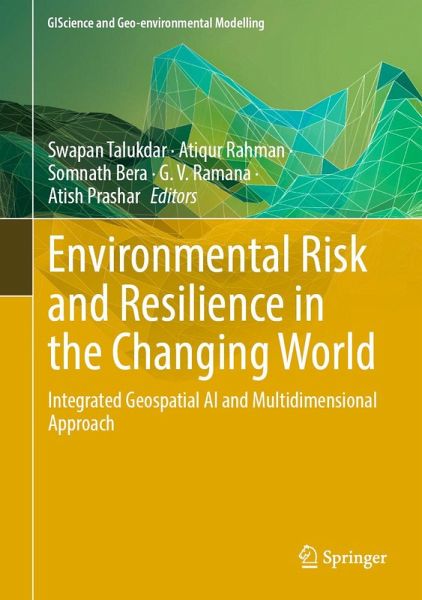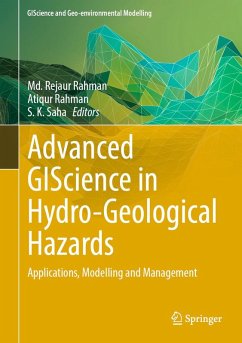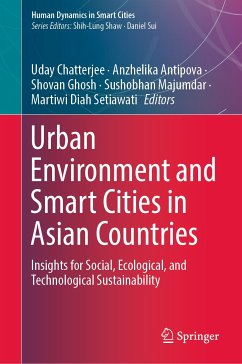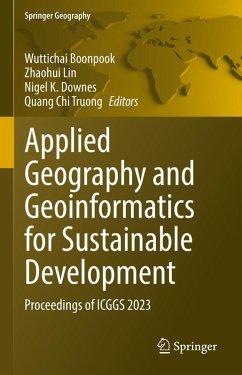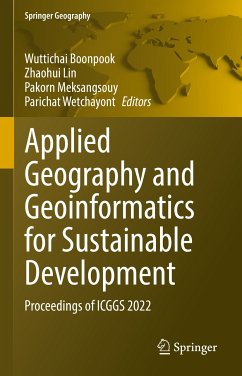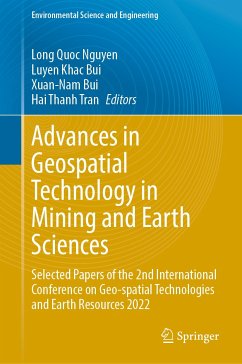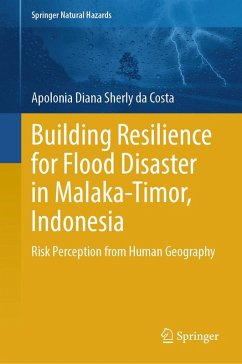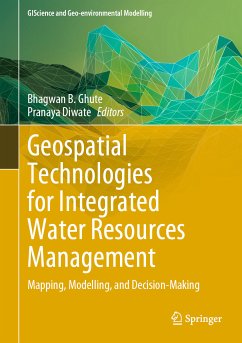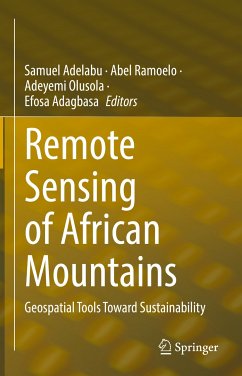Dr. Swapan Talukdar is an assistant professor at department of Geography, Asutosh College, University of Calcutta, Kolkata, India. He has worked as Dr. D.S. Kothari Post-doctoral fellow in the Department of Geography, Faculty of Natural sciences, Jamia Millia Islamia, New Delhi for the period of 20.09.2021-29.02.2024. Dr. Talukdar completed his PhD from the Department of Geography, University of Gour Banga, West Bengal, India in 2020. He served as the junior research fellow (JRF) during 2015-17 and senior research fellow (SRF) during 2017-19 in the Department of Geography, University of Gour Banga. Dr. Talukdar has completed two international projects (as Co-PI) in collaboration with the King Khalid University, Saudi Arabia. He has published more than 83 scientific research articles in journals of international repute such as Journal of Cleaner Production, Environmental Pollution, Scientific Reports, Ecological Indicators, Sustainable Cities and Society, etc. Also, one edited book has been accepted by Springer Nature. His main areas of research are urban environment, urban wetlands, natural hazards, remote sensing and AI and their applications in environmental management. He has served as review editor for Frontiers in Ecology and Evolution, Frontiers in Environmental Science, Frontiers in Earth Science, and Frontiers in Water. He has served as a guest editor in sustainability journal (MDPI). He has served as a reviewer for many journals of Springer, Elsevier, Taylor and Francis, MDPI, and Frontiers. Dr. Atiqur Rahman is a Professor of Geography at Dept. of Geography, Faculty of Natural Sciences, Jamia Millia Islamia. He completed B. Sc. (Hons.), M Sc., M Phil and Ph. D from Aligarh Muslim University, Aligarh. His research interest is urban environmental management, water resources and use of remote sensing satellite data, GIS and GPS. He was Post-Doctoral Fellow (PDF) at UFZ-Centre for Environmental Research, Leipzig, Germany (1999). He was Co-PI of Indo-Germany DST-DAAD major project. He is the recipient of prestigious Young Scientist Project Grant Award (2001-2004) from Department of Science and Technology (DST), Govt. of India. He worked as one a member of Scientific Research Team of NASA funded UEM project on Urban Ecology and Sustainability (2004-2007). He is the Co-PI Indo-Canadian major research projects on Economic Transformation and Childhood Obesity funded by ICMR (India) and CHI (Canada) during 2010-2015. He was Co-PI of a major research project funded by Ministry of Environment and Forest, Govt. of India. He was the collaborating Scientist of another NASA funded major project on Impacts of Desert Urbanization on Climate using Remote Sensing and Numerical Modeling (2012-2015). Prof. Rahman has also done professional development initiative training on Climate Change and Its Impacts: Resilience and Adaptation to Changes in Precipitation, at Brown University USA (2010). He served as a Steering Committee (SC) Member (2009-2012) of Population and Environment Research Network (PERN), CISIN, Columbia University USA. He was the Advisor-Technical cum Consultant on Remote Sensing & GIS for the project (2013-18) in the PHFI & AIIMS, and Emory University, USA project. He also served as a Member, Governing Body (GB), of some colleges of University of Delhi as a University Nominee. He was the Faculty Coordinator, Inspired Teachers In-Residence Programme organized by the Office of the President of India at Rashtrapati Bhavan, New Delhi, 6-12 June, 2015. Prof. Rahman was Hony. Dy. Director, (Academic) of Jamia Millia Islamia, (2015-2018). Prof. Rahman is the Coordinator, UGC-DRS SAP-I, Special Assistance Programme (SAP-I), Department of Geography, JMI. Ten students have been awarded Ph. D degrees under his supervision. He has published 15 books and 150 peer reviewed research papers in the journals of international repute such as Applied Geography, Ecological Indicators, Urban Climate and Nature's Scientific Reports, etc. He has widely travelled across the globe. Prof. Rahman is amongst the top 2% Global Elite Scientists in a study by University of Stanford, USA, published in the journal PLOS Biology in 2020 and 2021. Dr. G. V. Ramana is a Professor (Higher Administrative Grade) of Geotechnical engineering and obtained masters and doctoral degrees from Rensselaer Polytechnic Institute, Troy, New York and has been teaching at IIT Delhi for the last 25 years. His areas of interest are: (i) geoenviornmental engineering, (ii) geoenvironmental risk (iii) ground improvement, and (iv) geotechnical earthquake engineering. He was one of two co-authors of the textbook Principles of Soil Dynamics, (published by CENGAGE in January 2010). He was deputed to Asian Institute of Technology, Bangkok to teach a course on soil dynamics and earthquake engineering. Has guided 19 Ph.D. thesis, one M. S. thesis and 60 M. Tech theses primarily in the area of geotechnical/geoenvironmental engineering. Documented the research efforts in various reputed journals, and conferences. He had been Principal Investigator for several research projects. He is actively associated and contributed to the following dam projects: Salma Dam, Afghanistan; Polvaram Irrigation Project, Andhra Pradesh; TLDP Stage 3 Project, Tamanthi HEP, several ash ponds and tailings dams. He is been a member of several Panels of Expert Committee Members. Associated with over 100 consultancy projects dealing with: Specification of geotechnical investigations, Recommendation of Bearing capacity of shallow and deep foundations, soil-structure interaction of high-rise buildings, design of deep excavations, vibration assessment and isolation, liquefaction assessment and mitigation, testing of geosynthetics, design of ash ponds and landfills, and slope instability assessment and remedial measures. He also peer reviews design of RE walls and RE Slopes. He actively disseminates geotechnical expertise through invited lectures at short courses, training programmes for graduate engineers and at professional organizations. Dr. Somnath Bera is currently an assistant professor in the Department of Geography at the Central University of South Bihar, India. He pursued his MPhil and PhD in Disaster Studies at the Tata Institute of Social Sciences, Mumbai. Throughout his academic journey, Dr. Bera extensively explored disaster-affected regions across India, Nepal, China and Japan enriching his research with firsthand experiences. Following his doctoral studies, Dr. Bera served as a research associate at the Department of Civil Engineering, Indian Institute of Technology Delhi. His scholarly pursuits revolve around disaster risk and resilience. Dr. Bera's contributions to the field have earned him numerous fellowships, grants, and awards. He has authored a plethora of research articles published in esteemed journals like the "International Journal of Disaster Risk Reduction", "Journal of Cleaner Production", "Journal of Environmental Management", "Remote Sensing Applications: Society and Environment", "Natural Hazards," "Bulletin of Engineering Geology and the Environment," and "Progress in Disaster Science," among others. Additionally, Dr. Bera serves as a reviewer for prestigious international journals published by "Elsevier," "Springer," and "Taylor and Francis." Beyond academia, Dr. Bera finds joy in landscape painting. Prof. Atish Prashar is a leading newspaper columnist and a well known media educator with expertise in all media platforms. He is the Dean of the School of Media, Arts and aesthetics and works relentlessly as the head of the department of Mass Communication (since 2016) at the Central University of South Bihar. He made his entry in academia in the year 2002 and since then has been associated with Delhi University, IP University and many other institutions of excellence in the country. He believes in maintaining high standards in media education which has led him make significant contributions in various universities and institutes as a selection committee member also he is contributing in Bihar State University service commission as a subject expert. Prof. Parashar is well known trainer and associated with Bihar institute of public administration and rural development (BIPARD) and Bihar police academy. He has been training participants from Indian Administrative Services and Bihar Administrative Services. Prof. Parashar is a prolific writer with many reputed publications to his credit with an authorship of 5 books, 12 chapters and 30 research papers. Prof. Parashar is currently leading a major project as a Project Director at CUSB, funded by ICSSR. Title of his major project is "Awareness of Biodiversity and contaminants among inhabitants of ganga embankment area communication analysis of government and non-government communication about riverine ecology". He has been closely worked with NIDM and organized many workshops on disaster management. Quite often his editorials appear in reputed newspapers and magazines. Prof. Parashar is a member of various Board of Studies like Central University of Jharkhand, Assam University, CUSB, Patna University, Amity University etc. He is also an academic council member at CUSB. Besides academics, he has shown a high standard of administrative excellence. At Present Prof. Parashar is also serving as the Dean Students' Welfare at Central University of South Bihar. He represents CUSB as the Social Media champion at Ministry of Education. His zeal for extra curricular activities has made him Nodal officer for various Government of India programmes like: Ek Bharat Shrestha Bharat, Unnat Bharat, Gandhi 150 years, NCC, NSS etc. His philosophy of life swells from the belief of: simple living and high thinking; with his life practice he has set a high standard of the very philosophy.
